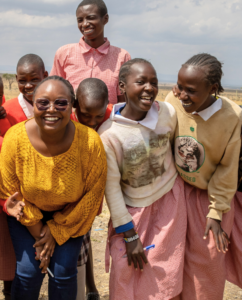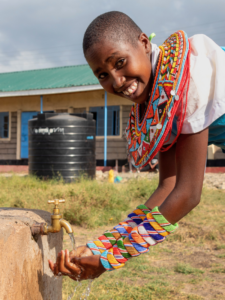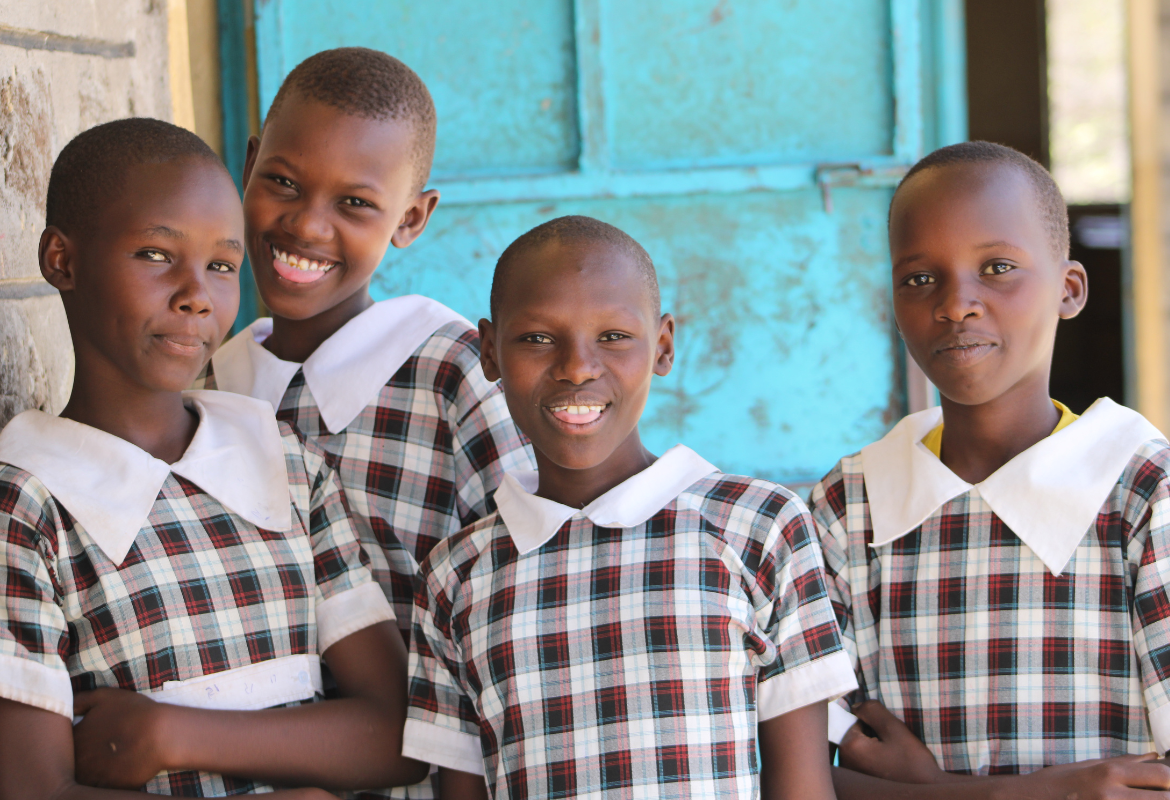May 26, 2025
How does clean water impact menstrual hygiene?
In Kenya, the education journey for the girl child has had its hurdles and improvements over the years. Initially, educational opportunities in Kenya were predominantly accessible to boys. Over the decades, concerted efforts by the government and various organizations have led to significant improvements in girls’ education.
For decades, Kenyan families, shaped by tradition and economic realities, prioritized the education of boys over girls. This trend was supported by a school system designed with boys in mind and a culture that viewed girls’ futures as centered in the home. Over time, however, progressive laws, public awareness campaigns, and the visible success of educated women have begun to shift the tide.
Great strides can be seen—just last year, during the Kenya Certificate of Secondary Education (KCSE), 482,202 girls sat for the exam compared to 480,310 boys, meaning girls outnumbered boys by exactly 1,892. That is a win I celebrate. But the journey to equality still has some miles to go, with factors such as teen pregnancies, the expectation to shoulder the bulk of household chores, and what I want to address today: menstruation.
Yes, it is sad that in 2025, menstruation is still a silent barrier affecting our girls’ education, especially for those from lower-income backgrounds. It is a fact that girls miss an average of 1.6–2.1 days of school every month due to menstrual-related issues, and over time, that adds up to a serious setback. That’s up to 20% of the school year lost, just because of a natural biological process.
That’s up to 20% of the school year lost, just because of a natural biological process.

As women and girls, one thing we never forget is the very first day our period starts. And this is my story.
I started my period fairly early, at 12 years old. Early bloomer, or whatever it is they say. I was in school, went to the toilet, and boom—I saw blood. Panic is an understatement. I was terrified. My uniform was a light blue dress. I remember this because kids would make fun of our dresses, saying they looked like what women wear in maternity wards. I don’t know why that was considered an insult back then.
I stained my “maternity dress” and spent the rest of the day with a sweater wrapped around my waist. You see, I hadn’t gotten the talk. I didn’t know this was normal and natural. In my head, I thought I was going to die. All I wanted was to see my mom, because who else would I tell that I had blood coming out of—you know where.
When I got home, I saw my mother and burst into tears, hyperventilating. She just smiled, holding back a laugh. She gave me a brief explanation about menstruation, introduced me to pads, and all that. Better believe that since I started early, I became the go-to person for most of my classmates when their periods started at school. I always carried pads—a habit I still have to this day.
Some reasons girls miss school in East Africa during their periods include:
1. Lack of sanitary products – which I was fortunate to have, and even share.
2. Shame and stigma – something I did experience a bit, with boys in school making fun of us.
3. Poor sanitation – schools without proper toilets, water, or privacy. Again, something I was lucky to have.
Come to think of it, I was privileged to have access to all that—funny, considering my childhood was anything but privileged. I got through it okay.

Poor sanitation makes it hard for girls to manage their periods safely and with dignity.
Access to clean and safe water is critical for managing menstruation hygienically and confidently. Girls need clean water to wash themselves and their reusable pads or underwear. Schools need handwashing stations and functional toilets to make girls feel safe during their periods. A lack of water increases the risk of infections, embarrassment, and long-term health issues, all of which contribute to absenteeism or even dropping out.
When schools are equipped with clean water, sanitary facilities, and menstrual hygiene education, girls stay in school longer, perform better, and are more likely to complete their education. Programs that provide free pads, pain relief, and WASH (Water, Sanitation, and Hygiene) facilities have already shown great success in improving attendance and confidence among adolescent girls.
Menstruation is not a problem; it’s a powerful sign of health.
Menstruation is not a problem; it’s a powerful sign of health.
 Your support in organizations, such as Well Aware, that are already deeply rooted in this cause is vital. You’d be surprised how far your contribution can go.
Your support in organizations, such as Well Aware, that are already deeply rooted in this cause is vital. You’d be surprised how far your contribution can go.
I’m lucky to be working for an organization that ensures clean water is accessible to schools and communities and even goes the extra mile to provide WASH training to students and adults. By contributing in my small way to bridging the gap of inequality for the girl child and helping advance menstrual hygiene, I feel qualified to end with this piece of advice:
On this World Menstrual Hygiene Day, whose theme is Educate, Empower, End Period Stigma, let this no longer be a silent barrier. When we normalize having these conversations, solutions to these barriers will be discussed more, transforming what life looks like for girls during this imperative chapter of their lives. You can be a champion for dignity.
